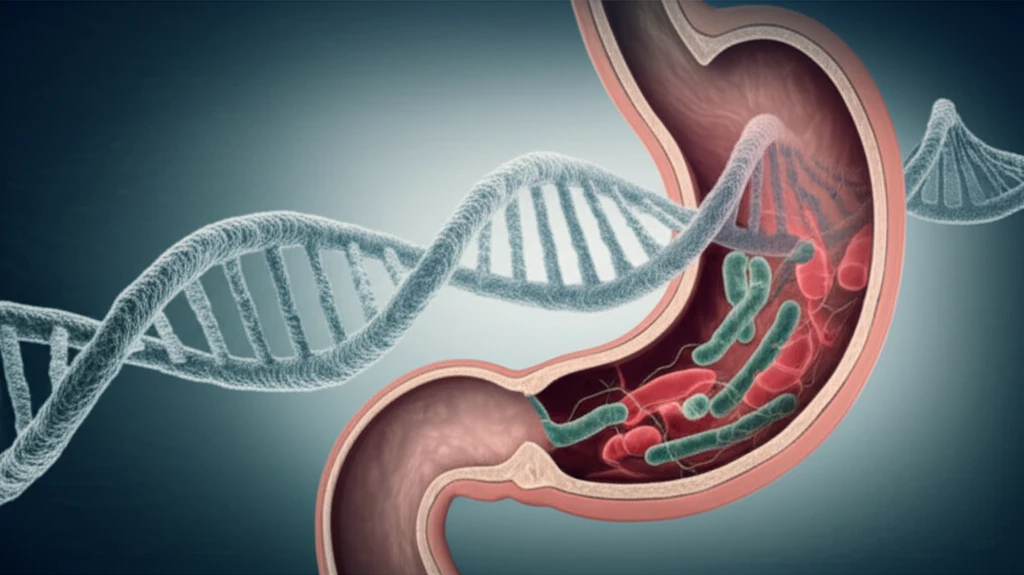
Gut Check: How Your Genes & H. pylori Could Increase Gastric Cancer Risk
"New research highlights the interplay between a common stomach bacteria and your genetic makeup in determining susceptibility to gastric cancer, particularly in Southern China."
Gastric cancer remains a significant global health threat, ranking among the leading causes of cancer-related deaths worldwide. While factors like diet and lifestyle play a role, Helicobacter pylori (H. pylori), a common bacterium that infects the stomach, is a well-established major culprit.
However, the story isn't quite that simple. Only a fraction of individuals infected with H. pylori go on to develop gastric cancer, suggesting that other factors are at play. One area of increasing interest is the role of genetics, specifically how variations in our genes might influence our susceptibility to the disease.
Now, a recent study published in the International Journal of Clinical Oncology sheds light on the complex interaction between H. pylori infection and a specific genetic polymorphism in the toll-like receptor 2 (TLR2) gene, potentially increasing gastric cancer risk in the Southern Chinese population. This article breaks down the key findings of this research and what it might mean for you.
Decoding the Genetic Link: TLR2 and Gastric Cancer

The study, conducted in Southern China, focused on a genetic variation known as the TLR2-196 to -174 ins/del polymorphism. TLR2 is a key component of our immune system, acting as a receptor that recognizes and responds to invading pathogens like H. pylori. This genetic variation involves the presence or absence (insertion or deletion) of a small piece of DNA in the TLR2 gene.
- Increased Risk: Individuals with the del/del genotype had a 2.59 times higher risk of developing gastric cancer compared to those with the ins/ins genotype.
- Intestinal Subtype: The del/del genotype was particularly associated with an increased risk of intestinal gastric cancer, a common subtype linked to H. pylori infection.
- Synergistic Effect: The combination of the del/del genotype and H. pylori infection resulted in a synergistic effect, further elevating the risk of gastric cancer. Those with both factors had a 3.04 times higher risk compared to those without either.
- No Impact on Survival: Interestingly, the study found no association between the TLR2 polymorphism and overall survival in gastric cancer patients.
What Does This Mean for You?
While this study provides valuable insights into the genetic factors influencing gastric cancer risk, it's important to remember that it was conducted in a specific population (Southern China). More research is needed to confirm these findings in other ethnic groups and to fully understand the underlying mechanisms.
However, the study reinforces the importance of H. pylori screening and treatment, especially for individuals with a family history of gastric cancer or other risk factors. If you're concerned about your risk, talk to your doctor about appropriate screening and prevention strategies.
Ultimately, a combination of lifestyle modifications (such as a healthy diet and avoiding smoking), H. pylori eradication when necessary, and awareness of your genetic predispositions can empower you to take control of your gastric health.
